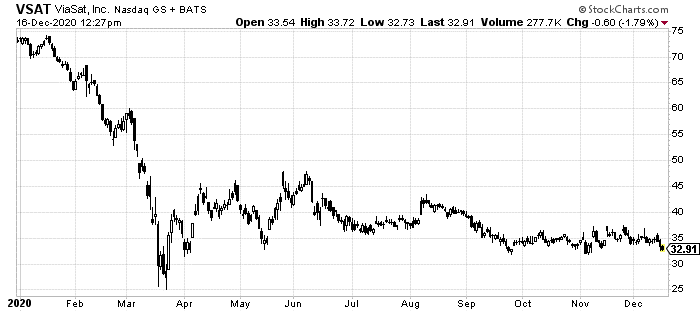An alarming new study came out this week that could have “dire implications.”
The Government Business Council (GBC) put out a report called the “Second Annual State of Military Communications Study” to assess communication deficiencies in the U.S. military.
And it is bleak.
Sixty percent of active-service military and civilian Department of Defense respondents claimed that “U.S. communications technology is either behind or only on par with their adversaries.”
This comes just as President Trump weighs a potential veto for the $740 billion 2021 National Defense Authorization Act that passed both Houses of Congress in recent days.
Whether that goes through now or later isn’t really the issue. The GBC study shows that this communications issue is a serious problem.
Ninety-seven percent of respondents said that at some point while working in the military they experienced “a complete loss in connectivity.” For a military dependent on a huge chain of command and split-second, life-or-death decisions, that’s a problem.
Of course, the DoD knows this. And you can bet that the Pentagon is doing something about it.
Back in August, I wrote about Michael Kratsios, the acting undersecretary of defense for research and engineering. He had just come out with a huge plan to integrate 5G technology on military bases. That plan is still going forward.
But now, with this report, there’s another area of potential investment for the massive military-industrial complex: satellites.
That 97% figure above is the real threat. Sometimes it was due to broken equipment. But more often communication went down because of a lack of bandwidth or problems in military satellites.
One fix, which the DoD has embraced, is to secure multiple private communication partners to overlap and prevent these faults.
One such company, Viasat Inc. (NASDAQ: VSAT), is primed to reap the benefits.

Viasat makes the hardware such as high-speed secure modems used by the military. As part of its C4I SATCOM Networking division, these modems offer high-capacity satellite connectivity and bandwidth to in-the-field members of the military.
The U.S. Air Force, U.S. Army, and NATO already use these products. But with the release of this new report, Viasat is looking at across-the-board adoption.

Grab a piece of paper and pen to write this down…
Because you’re about to see the name and ticker symbol of the ONLY 5G STOCK every investor should own.
You can get the name and ticker of this company right here, no strings attached. But you better act fast…
Because the Federal Communications Commission, the government agency in charge of 5G, just scheduled a major announcement that would send shares soaring once announced.
Don't miss out. Click Here to Get #1 5G play for 2020 before the next market close.
The company does a lot more than just sell modems.
Its Link 16 communications network gives fighters, particularly pilots, a 360-degree view of their operation in real-time. This is important to cut down on friendly fire and miscommunication between operators, another issue raised in the GBC report.
With so much happening in the world right now, it isn’t all that surprising that a company like this, which by its very nature needs to be a bit more secretive than other tech plays, can get lost in the fog.
But that creates a powerful opportunity.
About half of Viasat’s $2.3 billion in annual sales comes from the DoD. That number is no doubt headed higher. Even before this report, the Pentagon had been awarding Viasat with more lucrative contracts.
During its most recent quarterly results, Viasat announced $730 million in new contracts and actual earnings growth of about 10%.
Yet, shares haven’t recovered from March, when all stocks took a nosedive.

This report, along with the current focus over the defense spending bill, should send more eyes VSAT’s way.
This creates a unique short-term opportunity to get in on a strategically vital company before others. And with its technology and many other projects, Viasat shares could ride much higher in the long term too.
To your prosperity and health,
Joshua M. Belanger
Executive Publisher & Founder